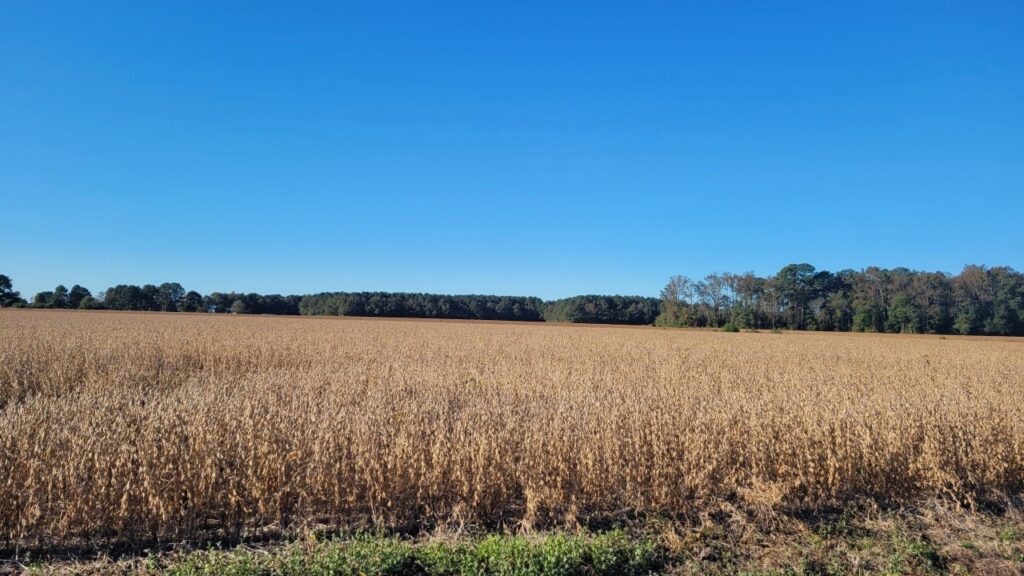Be kind. A phrase we’ve heard time and again since we were children.
These days, “be kind” is often followed by an even more empathetic adage: “Be kind. You never know what someone is going through.” And let’s be honest. Everyone seems to be going through something, even those who—through their own conscious choices—may have inadvertently asked for it.
I called a friend last week to discuss a project we’re working on together. She expressed concern for her neighbors impacted by changing U.S. trade policies. This was fresh on her mind because she’d just returned from her morning walk, during which she passed soybean field after soybean field.
“They’re so dry, Tara. The whole field. Just brown and full and waiting. No one is buying.”
She went on provide a crash course in soybean harvesting, which, admittedly, I’d not thought much about.
“Optimal harvest time is when seed moisture is between 12 percent and 13 percent,” she began. “Farmers minimize loss by harvesting at the right time. When 95 percent of the pods have reached a mature tan color, this signals that harvest should begin in the next five to seven days. Harvesting is usually done in the fall, from September to November,” she explained.
So they’re not really late, I thought to myself.
As if she could hear my inner dialogue, she continued, “Our farmers here usually harvest in early October. Since we’ve been drier, those beans have BEEN ready!“
BEEN ready. But because of the tariffs levied against China—a major purchaser of American soybeans, there’s no one to be ready for.
I wondered just how scary this must be for farmers who’ve invested heavily in tools and skill-building and materials and partnerships and workers. How they must feel having spent months readying for a once-reliable harvest only to be met with unexpected—and arguably manufactured—headwinds. To have figured out the winning formula and—in a flash—have the formula change and upend their life’s work.
On reflection, I realized something that weighed heavily on me: I didn’t have to wonder. I’m experiencing this too. Just like the 900,000 furloughed government (and government-adjacent) workers and the regions where they live and the downstream businesses they frequent. Like the more than 12 percent of U.S. residents (40 percent of whom are children) who may lose access to supplemental nutrition within days. Like the 300,000 Black women who were first to feel the sting of a rapidly shifting value system that continues to exchange community care for leverage. So many of us are feeling it. The unrelenting resistance to our every step forward. The helplessness. The whiplash.
This past week, I’ve seen heartless commentary on social media about people “losing their handouts” or needing to “get a job.” Clearly, too few of us understand just how many Americans must use all their energy to simply stand firm on the rickety bridge between survival and suffering. According to PNC Bank, 67 percent of Americans live paycheck to paycheck, up from 63 percent in 2024. The price of goods is outpacing wage inflation. And home ownership costs now take up more than 50 percent of average income compared to 33 percent in 2000, according to a recent Goldman Sachs Asset Management survey. For the vast majority of Americans, life is not getting better—at least not in the ways that allow us to breathe more deeply, be more creative, nurture meaningful connections, and experience more joy.
What happens when our livelihoods are threatened or destroyed? How do our priorities change? What becomes the main thing, and how far will we go to get it? And, most curiously, why are others—who may not be up against a wall yet—so unwilling and unable to recognize how one person’s suffering is also ours?
If you think this has nothing to do with you, you’re wrong. When our neighbors suffer, especially to this degree, everyone suffers. We are all less secure when some of us are insecure. We are less generative. Less healthy. Less free. Less hopeful. When any part of the body is wounded, we are—by definition—less whole.
Empathy is free. Care is free. Concern is free. But hatred? Criticism? Marginalization? A complete and total lack of compassion? Now that’ll cost you. It’s costing all of us.
Tara Jaye Frank
Photo: Soybean field in Greene County, NC. Courtesy of Teresa Barnhill
